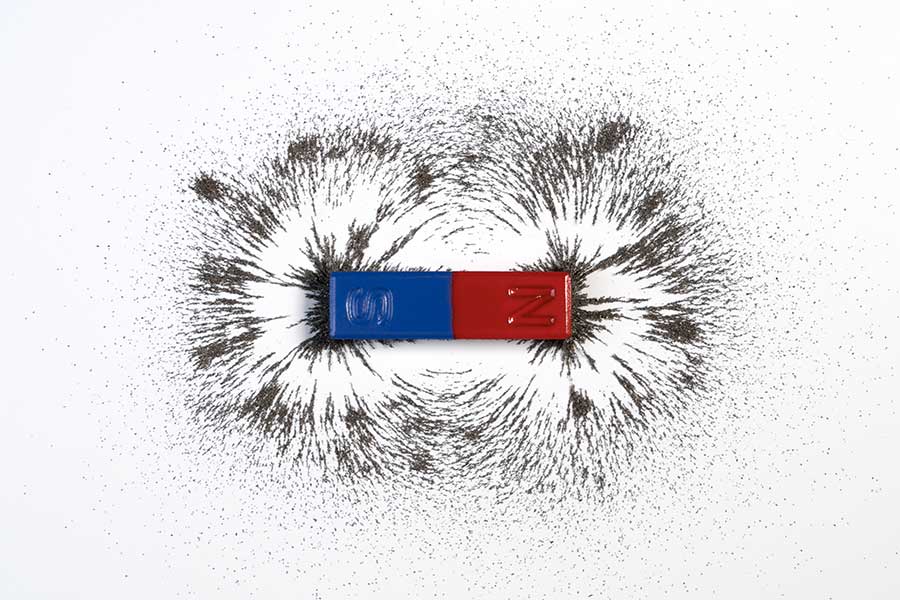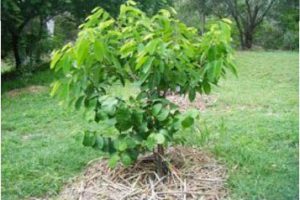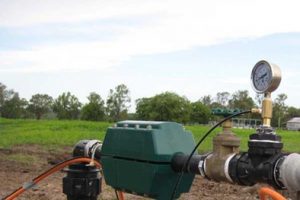The science behind magnetic water treatment

We are often asked if there is a scientific basis to magnetic water conditioning, and if there is independent research backing it up. The answer is yes, there is, and some summaries of research papers from top US research establishments including NASA and the US Department of Defense are shown below.
But perhaps even more convincing and much closer to home are the experiences of our agents and their many satisfied customers. After selling hundreds of magnetic water conditioners (water magnets) each year for many years now, the evidence is overwhelming – magnetic water conditioners work!
Feedback from happy customers
R & F Fuary, Bouldercombe QLD TAS

Our custard apple tree is now blooming with life.
Using hard (high calcium) water which has Class 3 salinity.
We have hard and salty water from our bore here and we thought we were stuck with it. Jeff did a water test for us, and he told us he could make a difference. I have to say that I didn’t really believe this but he said he’d give us our money back if it didn’t work. He even brought it out and showed us the best place to put it.
Well, what a difference it made! We used to have to use Dove in the shower because ordinary soap didn’t lather. And we used to feel itchy afterwards. All of that changed. And there are no more white marks on the screens and on the stainless steel sink. And even the plants in the garden grew better. There were new shoots on all the fruit trees. The custard apple didn’t like the salt in the water but now it’s blooming with life. In fact I’ve been telling everyone around here and they can all see the difference.
The Smiths, Cloncurry QLD
Using very hard (high calcium) bore and town water with Class 3 salinity
We have really terrible bore water in Cloncurry. And the town water is even worse than our bore sometimes. The plants don’t like it and it leaves white scale on everything you wash with it. A friend recommended Jeff, so we got into contact with him. The gardens look a treat now, and we can even wash the cars with it. No one washes their cars in Cloncurry! But we can because our water’s clean now. Great stuff.
G Bird, Rockhampton QLD
High calcium bore water with some iron as well
We have problems with calcium and iron in our bore water here at home. I’ve known Jeff for a number of years now, and we get his help with any of our customers with problem waters too because we have a bore drilling business. He got us a magnetic conditioner for the house, and he showed us how to get rid of the iron too. Now we get no more staining and no more white spots and streaks in the house. Have a look at the photos of the shower screen and the pool.
Ray McCarthy, Orielton, Tasmania
High Class 4 salinity bore water
It’s made a big difference to us. They said the water was too salty for growing raspberries, but they’re doing fine with the magnetic water conditioner. And it’s better in the house as well.
EF, Toowoomba QLD
Using water with high calcium levels that used to form scale
It appears to be working very well. It stops the calcium settling on the lawn and path. Instead of sticking there, it runs right off now. Yes, I’m happy with the results.
D. Henderson, San Marcos, California
Dairy farm in California, with high sodium and Class 5 salinity
Thank you so much for asking how things have progressed, and I am happy to say we are really pleased with the results. It has been nearly six months now since your magnetic conditioner arrived and the results are outstanding. The soil is “softer” now and you can drive a penetrometer in easy now. And the alfalfa has is responding. Less phytophthera and more hay per acre. I’ll try to get you some photos soon.

Growing beautiful lawns using bore water in outback Australia.
KH, Kingaroy QLD
Using extremely salty Class 5 salinity water with extremely high calcium levels for lawns and gardens
We are extremely happy with the unit, as you told me our water was the hardest water you had ever seen and you did not guarantee usage on my vegetable garden. I am very happy to say the vegetables are doing fine, as well as my kikuyu lawn.
Dr Klaus Kronenberg
Dr Klaus J Kronenberg was a world-renowned physicist specialising in the study of permanent magnets. Throughout the 1990s he researched the structure of water and the effects of physical conditioning (through a resonance phenomenon) on water (magnetic water treatment).
In his set of two articles entitled The science behind magnetic water conditioning published in Aqua Magazine, August 1993, he discusses the development of using magnets to treat water and the results from experiments as well as his own personal experiences.
Read the full articles here.
Extracts of works from other research scientists
Examination to Determine the Physical or Chemical Differences Between Untreated and Magnetically Treated Water by Schmutzer, M A , and Hull, G W
The United States Testing Center Inc, performed a test to determine the effectiveness of magnetic water treatment in preventing boiler scale build-up. Upon subjection of the residual salts from both the treated and nontreated samples to x-ray distraction examination, a distinctive difference in the crystalline structure of the deposited residues was noted. The two samples were found to have the same chemical constituents, but the x-ray distraction analysis indicates that the dominant crystal species in the untreated sample is calcium sulfate and calcium silicate, while in the treated sample the dominate species is a calcium carbonate and calcium sulfate (non-corrosive elements). The samples are therefore physically different.
Magnetic Treatment of Water by Hibben, Stuart G.
The Advanced Research Agency of the Department of Defense sponsored research in magnetic treatment of water reporting that the fact generally agreed upon is that a magnetic field reduces the kinetics of crystallization processes and the freedom of movement of charged particles. This limitation of the motion of particles in the field results in an increase in the number of collisions and the formation of crystallization centers. Magnetic treatment is effective if the liquid is passed through the flux of a magnet having a sufficiently field and magnetic gradient, providing that the temperature of the liquid is not too high.
Comparing Corrosion Rates of Steel Corrosion Inhibitors by Kuivinen, David E, Lewis Research Center, Cleveland.
NASA tested magnetically treated water against chemically treated water for corrosion rates of steel corrosion coupons placed in the two water systems. Reported results were excellent with corrosion rates of 1 to 50 mils per year using chemical inhibitors, with 4 mils per year considered to be acceptable, while corrosion rates of 0.0 mils per year were recorded for magnetic treatment of the water.
GrowFlow and GoFlow magnetic water conditioners. An environmentally safe and powerful way to treat water. Shop now >